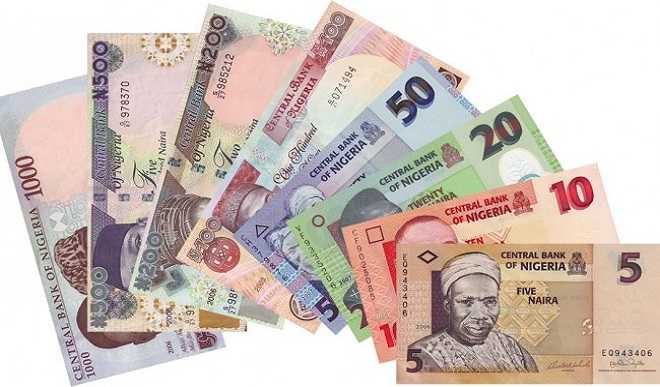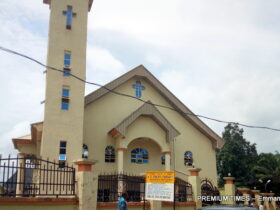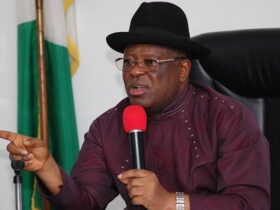
As Nigeria enters the festive season, citizens are grappling with a renewed shortage of Naira notes, contradicting the Central Bank of Nigeria’s (CBN) earlier assurances of ample currency availability.
Similar to the cash crunch experienced in December last year and the first quarter of 2023, attributed to the unsuccessful Naira redesign policy, the resurgence of Naira scarcity is now significantly impacting Nigerians.
Reports indicate that Automated Teller Machines (ATMs) in various parts of the country are either not dispensing cash or witnessing long queues, despite the CBN‘s promises.
Deposit Money Banks (DMBs) have implemented maximum withdrawal limits ranging from N20,000 to N50,000, while Point-of-Sale (PoS) transaction fees have doubled due to the scarcity of Naira. In the nation’s capital, PoS charges have surged by 100 per cent to N200 per N5,000, a trend observed nationwide.
As reported by Daily Post, The CBN attributes the Naira scarcity to panic withdrawals of substantial amounts of cash by DMBs from various CBN branches. Despite this, the apex bank contends that there is no actual scarcity of Naira, asserting that the economy has an adequate supply of the currency.
Contrary to the CBN’s position, the reality on the ground paints a different picture regarding the availability of Naira. CBN data from June reveals that currency in circulation has surged to N2.60 trillion from N982 billion in March 2023.
Dr. Uju Ogunbunka, the President of the Bank Customers’ Association of Nigeria, dismissed the CBN’s explanation as meaningless, emphasizing that a tangible Naira scarcity is evident in the country. As Nigerians face challenges accessing cash during the holiday season, concerns over the economic impact of the Naira shortage continue to grow.
“There is a real scarcity of cash; when I went around recently, the Naira scarcity was real.
“I don’t think CBN needs the advice to make banknotes available; it is their mandate. They should be telling Nigerians why they are incapable or deliberately shortchanging Nigerians.
“The justification from CBN on the reason for currency scarcity doesn’t hold water and is meaningless. What I think they should do is print more currency for Nigerians to transact their businesses.
“The excuses we get from CBN are untenable at this period because they have all the machinery to address the issue.
“If the CBN is unable to address the issue, it means they are facing a challenge”, he said.
Also, Elegede Segun, the incoming secretary of the Mobile Money and Agent Banking sector in Nigeria, acknowledged that the shortage of the naira has severely affected Point of Sale (PoS) operators.
He verified that PoS vendors have increased their fees to avoid operating at a deficit.
“It has been difficult; our members have resorted to local arrangements to get cash.
READ ALSO: Naira Crumbles, Hits All-Time Low Under Tinubu’s Watch
“Due to the scarcity, our members have increased their fees. It is a demand-and-supply situation. Most banks have a limit on cash withdrawals on ATMs and over-the-counter. The maximum withdrawal has been pegged at N50,000, which cannot serve one customer’s demand.
“As it is, banks are not giving out enough cash to customers.
“People are seeking self-help amid the scarcity. They now prefer to hold their cash than to deposit it at the bank because they are not sure of withdrawing the funds”, he stated.
Providing insight into the development, Professor Segun Ajibola, a distinguished economist and former President and Chairman of the Council of Chartered Institute of Bankers, criticized the explanation provided by the Central Bank of Nigeria (CBN) for the scarcity of the Naira.
“The banking industry has never had this kind of problem of currency shortages in the public space until late last year/early this year.
“The CBN has records of currency distribution to banks at the zonal levels. It should be easy to detect where the disconnect lies.
“If the scarcity is artificial through currency holding/hoarding, it should be easy to pin this down. But I wonder if anybody would hoard Naira because it is not a convertible currency that can be speculated upon.
“And on the claim of much withdrawal for the festivities, 2023 is not the first year Nigerians would celebrate Christmas. I guess something is still wrong somewhere outside this literal guesswork.
“It is up to the regulator to diagnose where lies the problem and move swiftly to douse it. Otherwise, counterfeiters could capitalise on the loophole to swindle Nigerians in desperate need of cash,” he said.
Furthermore, Mr. Idakolo Gbolade, the CEO of SD & D Capital Management, attributed the existing scarcity of Naira to communication challenges among the Central Bank of Nigeria (CBN), Deposit Money Banks (DMBs), and the general public.
He said: “The scarcity of Naira notes at this period is due to communication problems between the CBN, deposit money banks and the public.
“The CBN sought the Supreme Court judgement to extend usage of the old and the new Naira notes indefinitely, which was granted.
“However, the new CBN management team has not printed new notes because of their policy of managing liquidity in the system and ensuring that money in circulation does not exceed their threshold.”
“To prevent the recurrence of what happened between December 2022 and January 2024, some individuals have resorted to hoarding cash instead of returning it to the banks for effective distribution, which is the major cause of the scarcity. Some still believe the old one will be withdrawn from circulation this month.
“The CBN needs to intensify their communication network and assure Nigerians that there is no reason to hoard Naira notes”, he stated.
Recall that the Naira redesign policy by the CBN caused a cash crunch from December 2022 to February 2023, leading to a deadline extension to December 31, 2023, by the Supreme Court, which was subsequently vacated at the request of the federal government.







Leave a Reply